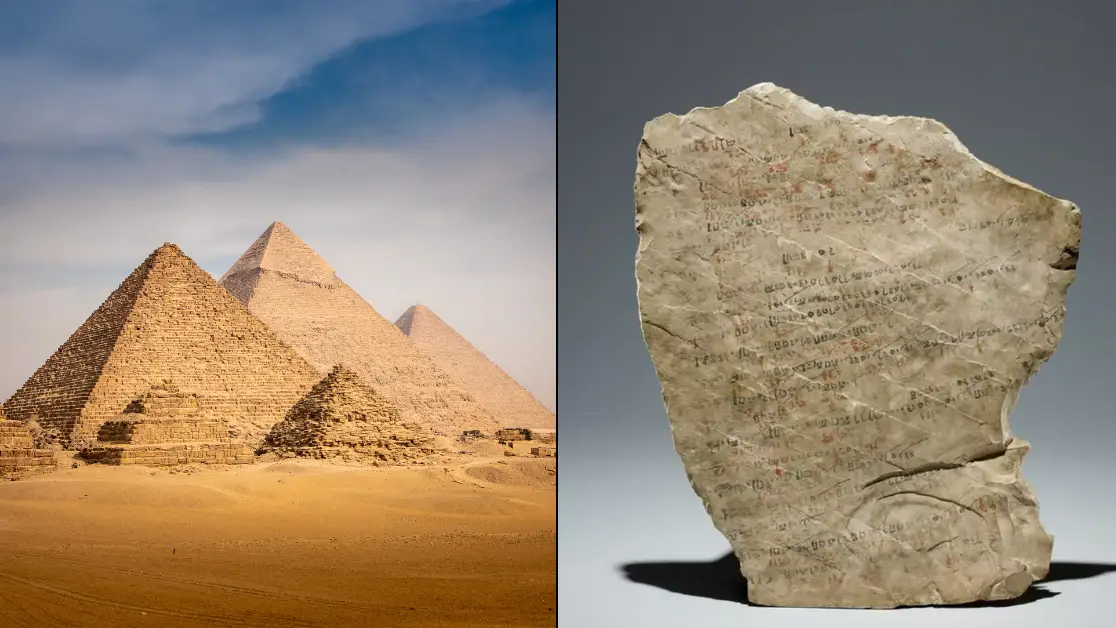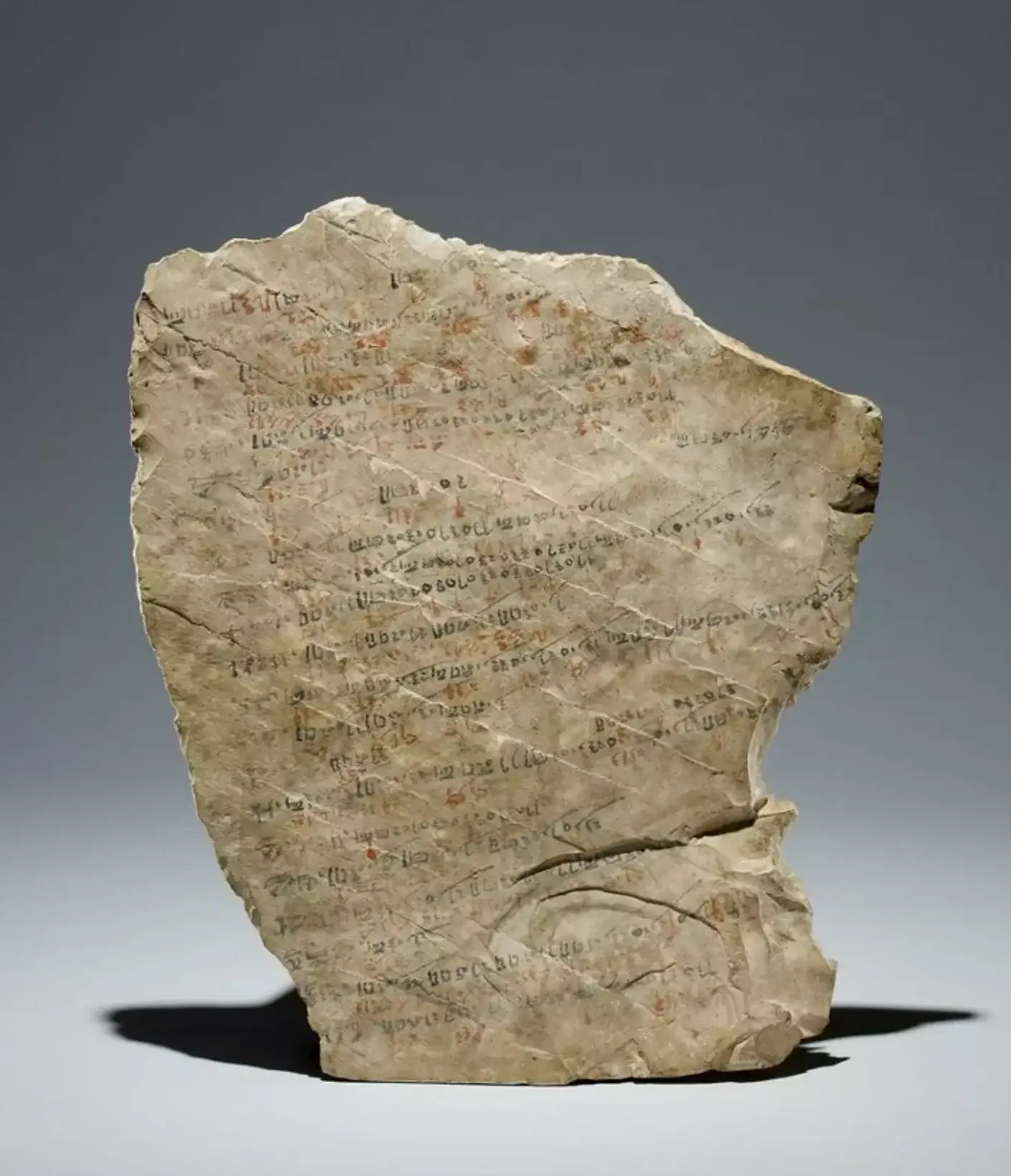
Calling in sick is apparently a part of human history, as one of the best excuses ever heard has been discovered in the Pyramids in Egypt, of all places.
The bizarre excuse was weirdly found on a tablet from the ancient structures, and after hearing it, you'll realise how far we've come in faking excuses for being sick.
It does provide us with an insight into working conditions in ancient Egypt, with the tablet now in the possession of the British Museum, and contains information about workers constructing the pyramids themselves.
Advert
Dating back to 1250 BCE, the limestone ostracon lists a number of reasons why labourers haven't been able to come into work.
The tablet was uncovered among other artefacts in the tomb builder's village of Deir el-Medina, situated on the west back of the River Nile.
On the tablet, the date is stated as 'month four of Winter, day 24', as there were a number of unexpected reasons listed that never would have been expected.
To kick us off, the first was a worker named Pennub that said that his mother was ill - pretty standard stuff, nothing outrageous there.
Second was Serba, who said that he was bitten by a scorpion. Ouch. It makes you think about how many animal-related excuses there may have been.
But here comes the most outrageous reason you may ever see.

It turns out that a number of people had to miss work because they were 'brewing beer', and it might be the best thing I've ever seen someone send to their boss.
With a closer look though, it's worth noting that back them, beer was crucial to workers at the time as it was almost a type of food to them.
The British Museum state: “In ancient Egypt, beer was so essential it was treated principally as a type of food – it was consumed daily and in great quantities at religious festivals and celebrations.
"Beer was an essential for labourers, like those who built the pyramids of Giza, who were provided with a daily ration of 1⅓ gallons (over 10 pints). Yet it still had divine status, with several gods and goddesses associated with beer," they conclude.
So if you ever visit the pyramids, just know that you have to thank beer for the sight you're beholding.

This discovery comes after the recent revelation that an ancient branch of the River Nile explains why the pyramids were built so close together and in a line.
According to a scientific study, the pyramids may have been built to tower over a green stretch along the River Nile many millenniums ago, which also seemingly included a branch of the river.
Uncovered soil samples and satellite imagery suggest that 31 of the pyramids were originally built along a 64km-long branch of the world's longest river, which boasted ample greenery that flourished further into the desert.
Topics: History, Food And Drink, World News, Weird